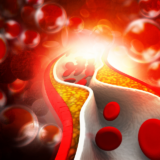Importance of Sleep






Sleep
Sleep ‘is a restorative process of the brain, by the brain, and for the brain’, and it is now clear that sleep is important for health of the entire body. The decrease in sleep duration and increase in sleep complaints in modern society raise concerns for a negative impact of chronic sleep disturbances on health in general, not only mental health. We almost spend about a third of our lives asleep. Getting enough sleep is essential for helping a person maintain optimal health and well-being. When it comes to your health, sleep is as vital as regular exercise and eating a balanced diet. Sleep is a vital, often neglected, component of every person’s overall health and well-being. Sleep plays a vital role in good health and well-being throughout your life. Getting enough quality sleep at the right times can help protect your mental health, physical health, quality of life, and safety. Sleep and health are strongly related – poor sleep can increase the risk of having poor health, and poor health can make it harder to sleep. Sleep disturbances can be one of the first signs of distress. Common mental health problems like anxiety and depression can often underpin sleep problems. Sleeping helps us to recover from mental as well as physical exertion. Sleep is important because it enables the body to repair and be fit and ready for another day. Getting adequate rest may also help prevent excess weight gain, heart disease, and increased illness duration.
Few reasons why good sleep is important
Sleep is important for improving concentration and productivity
Sleep helps your brain work properly. While you’re sleeping, your brain is preparing for the next day. It’s forming new pathways to help you learn and remember information. This includes cognition, concentration, productivity, and performance. Sleep deficiency alters activity in some parts of the brain. If you are sleep deficient, you may have trouble making decisions, solving problems, controlling your emotions and behavior, and coping with change. Children and teens that are sleep deficient may have problems getting along with others. They may feel angry and impulsive, have mood swings, feel sad or depressed, lack motivation or have problems paying attention
Poor sleep is linked to higher body weight
Sleep deficiency increases the risk of obesity, poor sleep is strongly linked to weight gain. Lack of sleep affects a person’s desire or ability to maintain a healthful lifestyle that might contribute to weight gain. People with short sleep duration tend to weigh significantly more than those who get adequate sleep. In fact, short sleep duration is one of the strongest risk factors for obesity. If you’re trying to lose weight, getting quality sleep is absolutely crucial. When you’re well-rested, you’re less hungry. Being sleep-deprived messes with the hormones in your brain — leptin and ghrelin — the hormones regulating hunger that control appetite. Lack of sleep leads to fatigue and results in less physical activity. In adults, sleeping four hours a night, compared with 10 hours a night, appears to increase hunger and appetite, in particular for calorie-dense foods high in carbohydrates. Chronic sleep deprivation also causes weight gain by affecting the way our bodies process and store carbohydrates, and by altering levels of hormones that affect our appetite.
Greater risk of heart disease and stroke with poor sleepers
Sleep quality and duration can have a major effect on many health risk factors. These are the factors believed to drive chronic diseases, including heart disease. Sleep plays an important role in your physical health. Sleep is involved in healing and repair of your heart and blood vessels. People who don’t get enough sleep are at far greater risk of heart disease or stroke than those who sleep 7–8 hours per night. One risk factor for heart disease is high blood pressure, getting adequate rest each night allows the body’s blood pressure to regulate itself. Serious sleep disorders have been linked to hypertension, increased stress hormone levels, irregular heartbeat, kidney disease, diabetes, and stroke. While you sleep, your blood pressure goes down, giving your heart and blood vessels a bit of a rest. The less sleep you get, the longer your blood pressure stays up during a 24-hour cycle. High blood pressure can lead to heart disease, including stroke.
Good sleep can help better calorie regulation
Similarly to gaining weight, getting a good night’s sleep can help a person consume fewer calories during the day. When a person does not sleep long enough, it can interfere with their body’s ability to regulate food intake correctly. Poor sleep affects hormones that regulate appetite. Those who get adequate sleep tend to eat fewer calories than those who don’t. This includes higher levels of ghrelin, the hormone that stimulates appetite, and reduced levels of leptin, the hormone that suppresses appetite. The amount of energy you use during sleep depends on a number of factors, including your basal metabolic rate (BMR), which determines the amount of energy your body needs to maintain its most basic functions. This includes breathing, blood circulation, and keeping your organs running. How much you weigh plays a role in setting your BMR: The more pounds you are carrying, the more energy you use. Finally, the amount of sleep a person gets influences calories burned as well
Good sleep provides great agility
Sleep is as important for agility as consuming enough calories and nutrients. One of the reasons for this requirement is that the body heals during sleep. Sleep provides better performance intensity, more energy, better coordination, faster speed and better mental functioning. Besides robbing you of energy and time for muscle repair, lack of sleep saps your motivation and observes slower reaction times. Proper rest sets you up for your best performance.
Sharper Brain
When you’re running low on sleep, you’ll probably have trouble holding onto and recalling details. That’s because sleep plays a big part in both learning and memory. Without enough sleep, it’s tough to focus and take in new information. Your brain also doesn’t have enough time to properly store memories so you can pull them up later. Another thing that your brain does while you sleep is process your emotions. Your mind needs this time in order to recognize and react the right way. When you cut that short, you tend to have more negative emotional reactions and fewer positive ones. Chronic lack of sleep can also raise the chance of having a mood disorder.
Sleep improves immune system
Your immune system relies on sleep to stay healthy. This system defends your body against foreign or harmful substances. Ongoing sleep deficiency can change the way in which your immune system responds. To help you ward off illnesses, your immune system identifies harmful bacteria and viruses in your body and destroys them. Ongoing lack of sleep changes the way your immune cells work.
Sleep and Cytokines – Without sufficient sleep, your body makes fewer cytokines, a type of protein that targets infection and inflammation, effectively creating an immune response. Cytokines are both produced and released during sleep. Sleep helps the body repair, regenerate, and recover. The immune system is no exception to this relationship. Sleep deprivation alters immune function, including the activity of the body’s killer cells. Better sleep quality can help the body fight off infection; even a small loss of sleep can impair immune function
Sleep affects glucose metabolism and type 2 diabetes risk
Poor sleep habits are also strongly linked to adverse effects on blood sugar. Sleep can affect your blood sugar levels, and your blood glucose control can also affect your sleep. It’s a vicious cycle. As the amount of sleep decreases, blood sugar increases, escalating the issue. Lack of sleep has been shown to increase blood sugar levels and the risk of diabetic issues. Sleep also affects how your body reacts to insulin, the hormone that controls your blood glucose (sugar) level. Sleep deficiency results in a higher than normal blood sugar level, which may increase your risk for diabetes. During the deep, slow-wave part of your sleep cycle, the amount of glucose in your blood drops. Not enough time in this deepest stage means you don’t get that break to allow a reset. Your body will have a harder time responding to your cells’ needs and blood sugar levels.
Skin Health
Sleep is important for all of the body’s systems and their functioning. As far as the skin is concerned, lack of sleep causes the stress hormone cortisol to be released, which in turn encourages inflammation in the skin. The benefits of sleep for skin include fewer wrinkles, less sagging, rejuvenated color, fewer acne blemishes, and less inflammation. Along with nutrition and exercise, good sleep is one of the pillars of health. You simply cannot achieve optimal health without taking care of your sleep. During sleep, your body delivers fluids to organs and tissues that need replenishing, while removing excess fluids from other areas. Cutting this process short is one reason sleep-deprived people often have under-the-eye bags (i.e., pockets of fluid). Skimping on sleep also increases levels of inflammation and stress hormones, which can destabilize your immune system, aggravating skin problems like acne, psoriasis, and eczema. Sleep is the time when your body repairs itself. This is true for your epidermis as much as it is for your brain or your muscles. During sleep, your skin’s blood flow increases, and the organ rebuilds its collagen and repairs damage from UV exposure, reducing wrinkles and age spots. Skipping on sleep raises cortisol levels, which can interfere with collagen production
Social and emotional intelligence
Sleep has links to people’s emotional and social intelligence. Someone who does not get adequate sleep is more likely to have issues with recognizing other people’s emotions and expressions. A person’s emotional empathy is less when they do not get adequate sleep. Sleep loss reduces your ability to interact socially. People who have less sleep have a reduced ability to recognize expressions of anger and happiness. Sleep deprivation may reduce your social skills and ability to recognize people’s emotional expressions.
Preventing depression
People with sleep disorders such as insomnia are likely to show signs of depression. Mental health issues are strongly linked to poor sleep quality and sleeping disorders. Poor sleeping patterns are strongly linked to depression, particularly for those with a sleeping disorder.
Lower inflammation
Sleep can have a major effect on inflammation in your body. Sleep loss is known to activate undesirable markers of inflammation and cell damage. Poor sleep causes long-term inflammation of the digestive tract, in disorders known as inflammatory bowel disease.














5 comments
lose weight
June 11, 2021 at 2:52 am
Hi there, just wanted to mention, I loved this post.
It was practical. Keep on posting!
darlashaffer
April 2, 2022 at 1:34 am
Great blog here! Also, your website loads up very fast! I wish my website loaded up as fast as yours lol
darwinpride
May 19, 2022 at 9:34 pm
Hi to all, how is the whole thing, I think everyone is getting more from this website, and
your views are fastidious in favor of new viewers.
dwayneeveringham
May 20, 2022 at 2:07 pm
Very nice post. I just stumbled upon your blog and wished to say that I’ve really enjoyed browsing your blog posts.
After all I will be subscribing to your rss feed and I hope you write again very soon!
Life Coach
June 27, 2023 at 3:47 pm
Thiѕ site offers qᥙality dependent posts